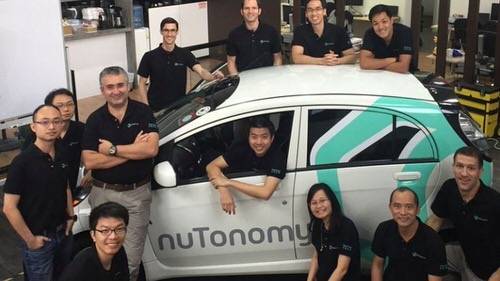Driverless startup NuTonomy might be the first company with a fleet of self-driving taxis on the roads, if the city of Singapore approves of a pilot program to be launched later this year.
NuTonomy started at the Massachusetts Institute of Technology (MIT), and has been working for three years to create a fully autonomous vehicle. The firm raised $3.6 million in seed funding three months ago, and will use the money to launch its “One North” pilot program, if Singapore approves. The program would be based in downtown Singapore, according to IEEE Spectrum, and branch out as NuTonomy adds more taxis.
MIT has already worked with Singapore on self-driving projects, giving it an edge over other competitors like Google, Tesla, and Uber, which are all looking to build self-driving fleets in the near future.
NuTonomy will supposedly reach “level four” in the self-driving deployment, if it manages to get approval from Singapore. Google and Tesla are currently at “level three”; having a human inside the car in-case the self-driving functionality fails.
“This could make car-sharing something that is almost as convenient as having your own private car, but with the accessibility and cost of public transit,” Emilio Frazzoli, nuTonomy chief technology officer and MIT professor of aeronautics, said to MIT News.
Singapore not only battleground in self-driving supremacy
NuTonomy isn’t just working on self-driving taxis for Singapore though. It has a partnership with Jaguar and Land Rover to build autonomous systems. This makes it one of the big players in the self-driving landscape, but despite the surge in success, the 25-man team is still the underdog in the race against its larger competitors.
Analysts suggest we won’t see self-driving cars adopted by regulators until at least 2017, and even then we’ll see some sort of human-control to ensure if the self-driving system fails there’s a safety backup. The NuTonomy pilot program might be a test case for regulators and self-driving firms alike, to see if the cars are more safe and efficient without a human inside.


















